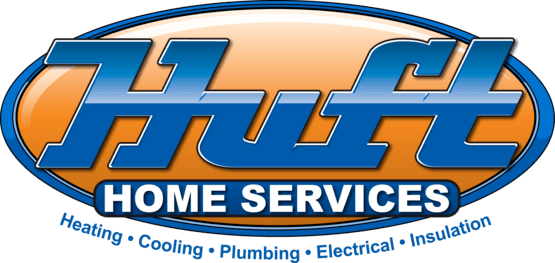Your home’s plumbing system is one of the most important systems in your home. How well you treat it will determine its longevity. This makes negligence one of the major causes of plumbing problems.
Unfortunately, your plumbing system is not one of the things that can take a beating. Therefore, before you do something that can have disastrous results, it’s good to think about the consequences. Here are eight ways to avoid damaging your plumbing system.
1. Don’t Dump Grease Down the Drain
Grease is your plumbing’s worst enemy. After cooking bacon, it’s wise to find a better way to dispose of the grease. Grease is solid at room temperature and should never find its way to your pipes. Once the grease gets to the P-trap under your sink, it solidifies and becomes a sticky trap for debris and gunk. The blockage will eventually clog or slow your drain.
If the grease finds its way to the sewer, it will meet with all sorts of wastes and cause a blockage. If you pour grease down the drain accidentally, remove it with natural cleaners like baking soda and vinegar.
2. Flush Your Garbage Disposal
A garbage can in the kitchen is unsightly, and that’s why people invest in garbage disposals. Your garbage disposal helps to reduce odors in the kitchen sink; it mutilates the food particles and enables them to drain easily. The disadvantage of having a garbage disposal is that it can harbor waste and odors.
Avoid putting items that cannot be broken down easily into the garbage disposal. Running cold water often helps to flush food particles from the trap to the waste pipes without damaging the moving parts.
If the moving parts start grinding, turn off the faucet and add one tablespoon of baking soda and one cup of vinegar. Turn on the garbage disposal for several minutes until the grinding stops. Then, flush it with hot water.
3. Don’t Flush Unwanted Materials in the Toilet
Be careful when flushing things down the toilet. Even food scraps don’t break down as easily, meaning that they can clog your sewer line. The last thing you want is to have a clogged toilet in your home.
If you drop something into the toilet, don’t assume that a flush will unclog it. Instead, try to remove it with a plunger. If the plunger does not work, use the plumber’s snake to remove it. Fill the toilet with water, and use the plumber’s snake to dislodge it. You might have to call a plumber if these methods don’t work.
4. Use Chemicals Wisely
Homeowners use all sorts of chemicals to unclog blocked drains and toilets. However, most chemicals do more harm than good to the plumbing. Many chemicals use an oxidizing chemical reaction to dissolve the items that clog your drains. However, they damage porcelain toilets in the process.
Such chemicals will not only hurt you, but they will also cause costly damage. The chemicals that most people use are strong enough to cut through hair and all sorts of debris. The downside is that they are corrosive enough to damage your plumbing. Natural products such as baking soda, vinegar, and lemon combine to form highly potent compounds that will clean your drains safely. Dish soap is a mild chemical that will work just as well.
5. Fix Your Faucets
Almost every homeowner has experienced a problem with dripping faucets. Besides being annoying, they can drip away gallons of water over time and cost you money. The internal washer becomes worn out and dislodged, especially if you live in a hard-water region.
Turn off the water supply and disassemble the faucet with a wrench. Tape the edges of your wrench with tape to avoid scratching your faucet. Remove the mineral deposits with vinegar and a scouring pad. If the ring and washers have become rusty and disfigured, be sure to replace them.
6. Deal With Low Water Pressure
If water trickles from your faucets instead of gushing, you might have a deeper problem to deal with. Find out whether the problem has affected one appliance or the entire house. If your neighbors are not having the same problem, then you need to check the main water supply valve to ensure that it’s fully open.
In some cases, low water pressure means that most of your appliances and pipes are clogged. You need to disassemble the affected appliances and use vinegar to dissolve the mineral buildup.
In most cases, you will need a plumber to:
- Determine all affected areas
- Identify the corroded pipes
- Replace the burst pipes
- Remove airlocks
7. Winterize Your Pipes
When water freezes in the pipes, it expands significantly as it turns to ice. This expansion generates enormous pressure that causes damage to the pipes. Experts recommend winterizing your plumbing if your house will be vacant for a while. You don’t want to deal with all sorts of problems when you return home from holiday.
During the winter, it’s wise to prepare your plumbing for the freezing temperatures by insulating the pipes in the unheated areas. These include the crawlspaces, attic, and garage. Let the faucet drip as running a trickle through the pipes will prevent them from freezing.
Pipes freeze and burst at 32 degrees Fahrenheit, the freezing point for water. According to Energy Star, you should set your thermostat at 70 degrees Fahrenheit during the winter for optimum energy efficiency.
8. Install a Whole-House Water Softener
From staining your appliances to clogging your pipes, hard water poses a lot of problems to your plumbing. A water softener will get rid of the mineral deposits before they attack your system. You will not only have softer skin and hair, but it will also increase your plumbing’s longevity.
You also need a whole-house water filter that removes the minerals that cause scale. A plumber can run some tests to determine the type of filter that you need. Most homes require a filter that eliminates fluoride, calcium, and chlorine.
Install the water softener to the main water supply system before any other plumbing connection. The water softener should supply water to the heater. Then, install a high-quality water filter to further purify your drinking water.
The combination of a water softener and filter will help to:
- Remove sediments
- Prevent corrosion
- Get rid of harmful microorganisms
- Eliminate heavy metals such as lead and magnesium
- Protect your appliances
- Make water safe for drinking
- Make water taste better
Contact an Experienced Plumber
Get into a maintenance program with Huft Home Services to avoid damaging your plumbing system. Our certified and well-trained plumbers will always show up to inspect your pipes, sinks, and toilets and perform repairs when needed. Reach out to us when you sense the slightest problem with your plumbing system.
Huft Home Services also offers plumbing replacements and installation. In addition to that, we have heating and cooling services to promote comfortable living. Contact us today at Huft Home Services for world-class services with superior warranties in Elk Grove, CA, and the surrounding areas.



